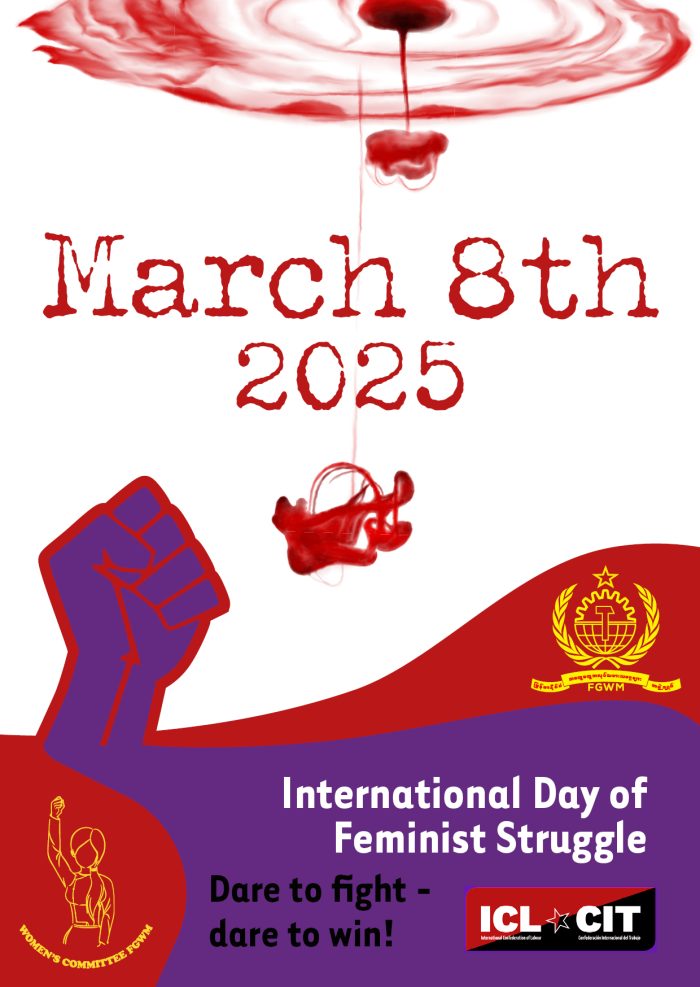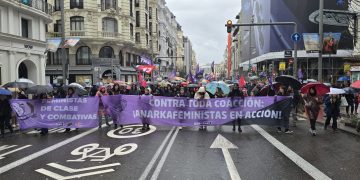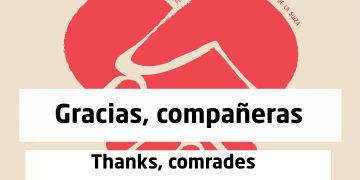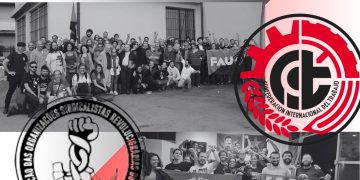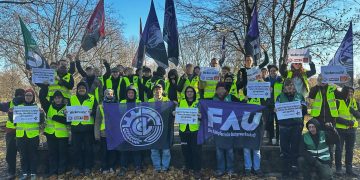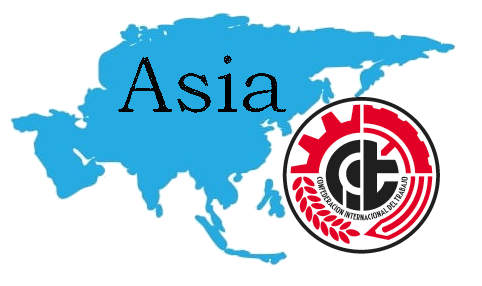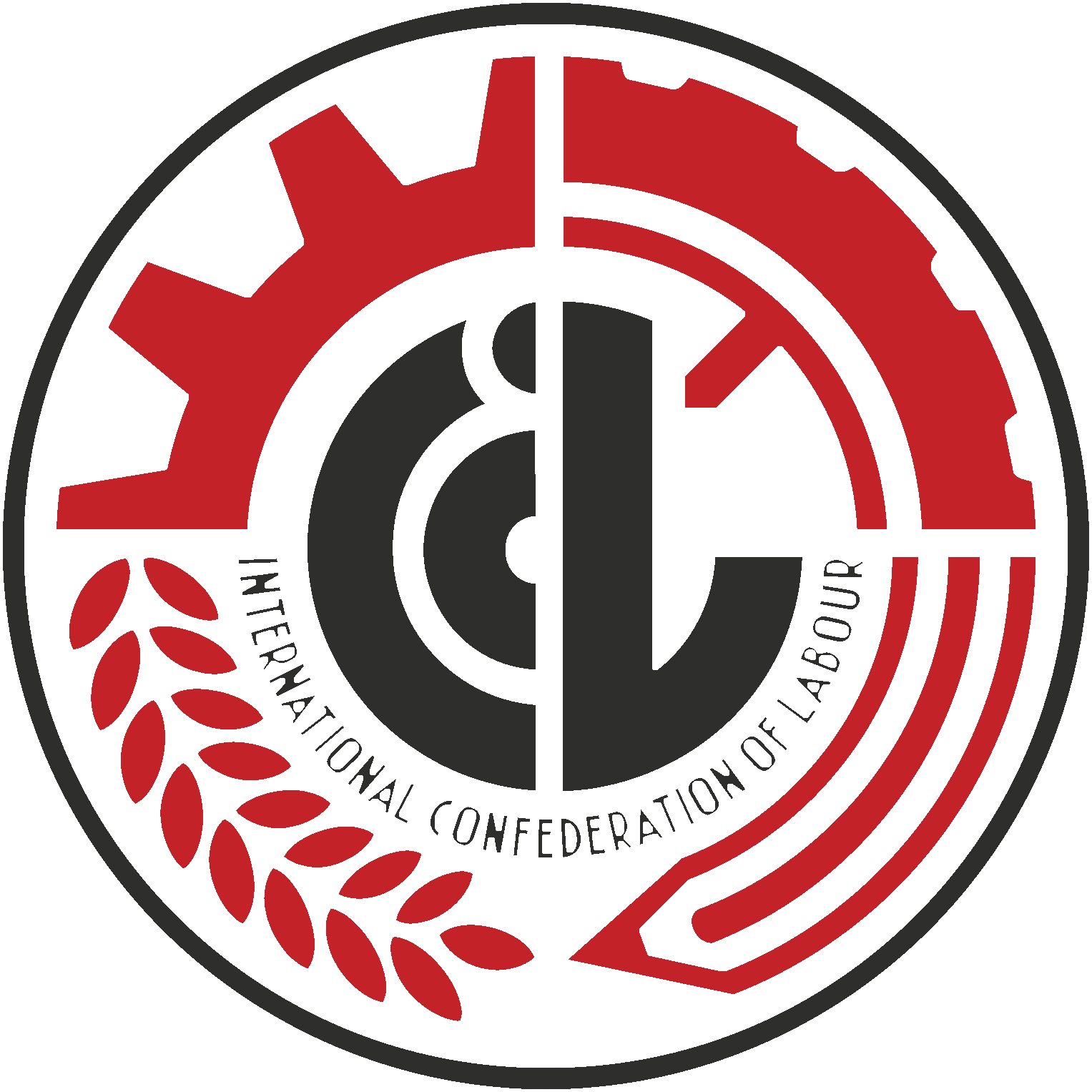Call: International Day of Feminist Struggle – Menstrual products for all who need them!
The poor conditions of santiary facilities as well as the lack of menstrual products pose severe problems for factory workers worldwide. The Federation of General Workers Myanmar (FGWM) together with the working group Asia of the International Confederation of Labour (ICL) initiated an international call to commemorate the Day of Feminist Struggles on March 8th and push for changes inside the factories.
On March 8th the factory workers will attempt to inform the management/owners about their demands. All comrades worldwide can help to increase the pressure by approaching retailers/ brands involved, for example by handing over the demands put forward by the factory unions on the ground to the store management.
Check out the call as well as the list of demands and brands involved below.
You can download leaflets in English and German for March 8th here.
Check out the video messages of our FGWM comrades: video 1, video 2.
Call: International Day of Feminist Struggle –
Menstrual products for all who need them
Imagine you’re in pain, you’re bleeding, but you cannot leave work. You do not only risk consequences – you physically cannot leave the premises without the permission of your boss.
That is the reality for thousands of female workers at garment factories in South and South East Asia. Especially in Myanmar, the situation got even worse within the past four years, since the military forcibly took power, (re)installing a dictatorship. Even when the female workers are on their period they have to work overtime, six days a week and without proper sanitary facilities. In addition, the prices for menstrual pads have been rising so high, that most workers cannot afford them anymore. The toilets aren’t clean, there’s trash all over the place, the lights aren’t working properly and the workers use left over fabric from the garment factories as pads, often resulting in infections and allergies.
Not just in Myanmar – affected people all over the world have to pay for their own menstrual products and need to perform like anyone else on their jobs while suffering from pain and bleeding. Some are worse off than others as pain is always individual, and the various factors that lead to pain affect each person differently and vary from day to day.
In some countries, like South Korea, Taiwan and Zambia, some form of a right to menstrual leave was introduced already. Also, in Spain a similar regulation was just passed in 2023. Looking at these examples, there is no excuse for other countries not to follow suit!
On the global level we struggle for:
- Free menstrual products at the workplace or the payment of a bonus equal to the cost of these products!
- Paid leave for workers during their menstruation period!
- Adjustment of workload for pregnant or menstruating workers and dropping of imposed production targets!
The comrades of FGWM push for the following demands inside the factories:
- Free menstrual products at the workplace or the payment of a bonus equal to the cost of these products!
- Paid leave during menstruation period and a guarantee that workers can leave the factory or have the possibility to rest at the factory clinic!
- Adjustment of workload for pregnant or menstruating workers and dropping of compulsory production targets!
- Clean toilets, drinking water, soap and additional garbage bins for menstrual products at all factories!
- Provide necessary healthcare for female workers at the workplace – also during their menstruation period!
- Provide contraceptives for free or pay a refund!
Our demands are directed at the factory owners as well as the brands and corporations, which mainly profit from the exploitation inside the factories. They must ensure that the required conditions are met at the factories they source from!
The factory unions on the ground affiliated to FGWM confirm that production is currently taking place for the following brands:
1/ Sinsay (owned by LPP S.A. based in Gdansk, Poland. The company owns five distinct fashion brands: Reserved, House, Cropp, Mohito and Sinsay.)
2/ SHISKY (owned by DRIVE Ltd based in Nagoya, Japan)
3/ BREIZH OCEAN (based in Saint-Vigor-le-Grand, France)
4/ ONLY & VERO MODA (both belong to the company BESTSELLER based in Brande, Denmark)
5/ SOULCAL & CO (owned by the retail, sport and intellectual property group Frasers Group plc based in Shirebrook, UK)
6/ H & M (owned by H & M Hennes & Mauritz AB based in Stockholm, Sweden)
7/ ENCUENTRO (Encuentro Fashion Group based in Barcelona, Tenerife and Shanghai)
8/ ZARA & Bershka (both owned by the multinational fashion design, manufacturing, and retailing group Inditex based in Arteixo, Spain)
9/ SIOEN (Sioen Industries based in Ardooie, Belgium)
10/ FB SISTER (belongs to the retailer New Yorker – New Yorker Group Services International GmbH & Co.KG – based in Braunschweig, Germany)
11/ LA Vie En Rose (owned by Boutique La Vie en Rose Inc. based in Montreal, Canada)
12/ Hunkemöller (Hunkemöller International B.V. based in Hilversum, Netherlands and Worcestershire, UK)
13/ My Specials (belongs to Women’Secret based in Madrid, Spain)
14/ FieldCore (owned by Workman Co., Ltd. based in Shiba-cho, Japan)
15/ Etam (Etam Groupe based in Paris, France)
16/ LC Waikiki (ready-to-wear fashion company based in Istanbul, Turkey)
17/ Wilson Sporting Goods (owned by Amer Sports based in Helsinki, Finland)
18/ BH Bikes (Beistegui Hermanos S.A. based in Vitoria-Gasteiz, Spain)
Questions or comments on this coordination can be directed at asia@icl-cit.org
Also available in:
 Español (Spanish)
Español (Spanish)




